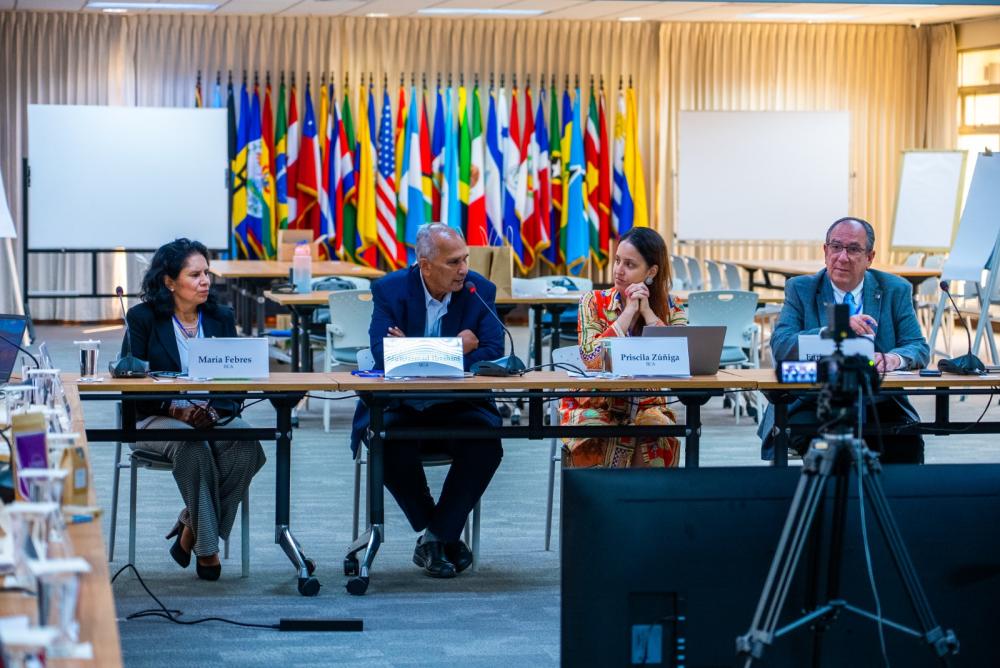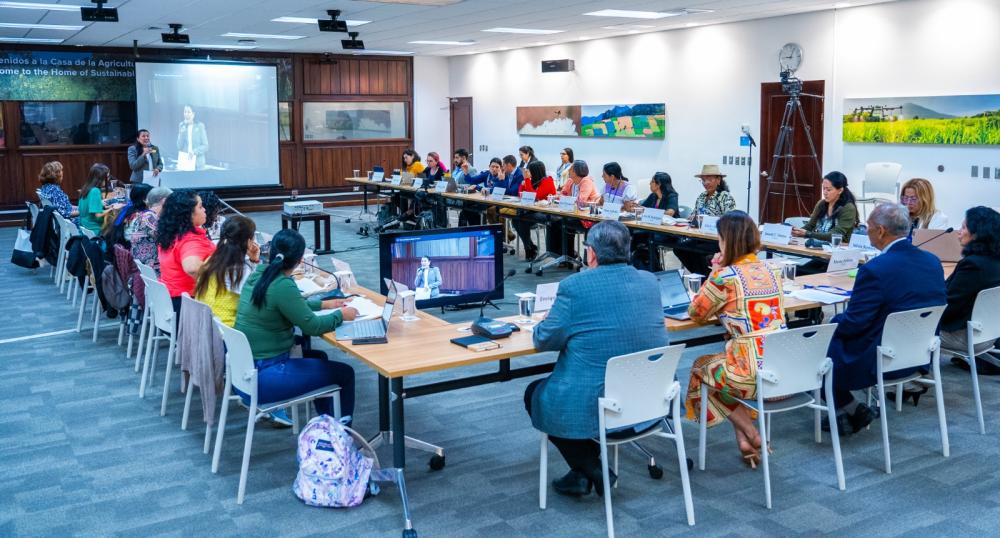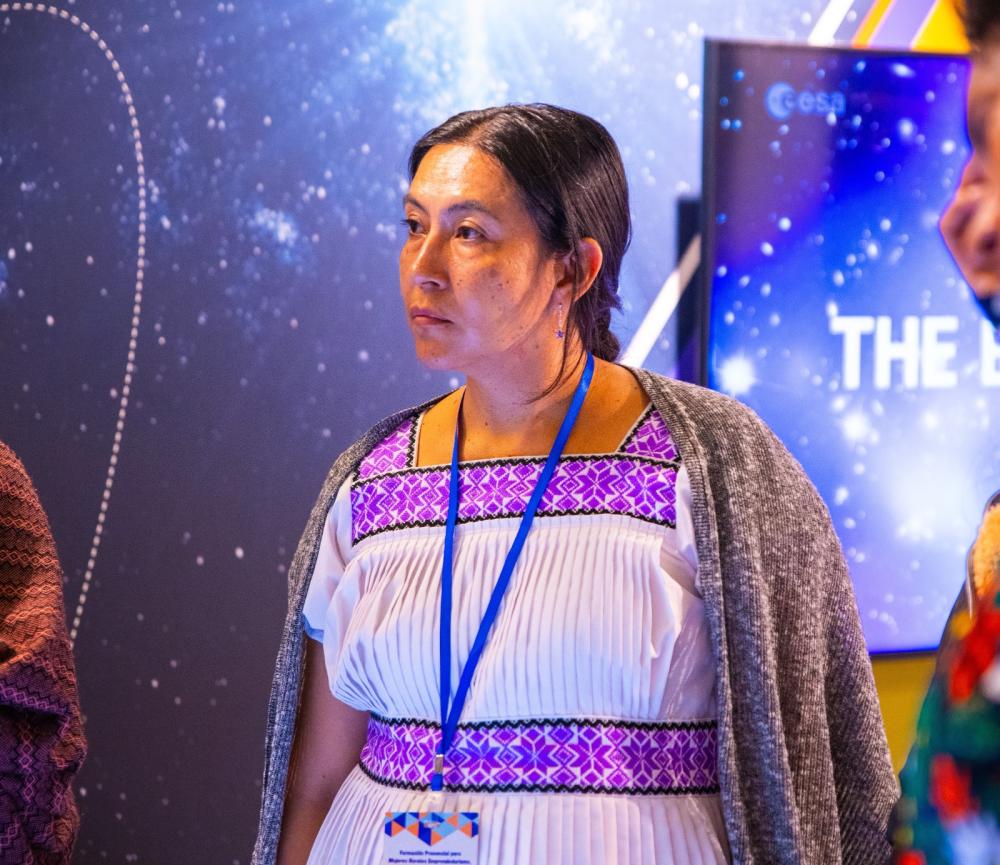Rural women entrepreneurs from the Andean, Central and North America regions receive training at IICA to achieve business autonomy and reduce technological gaps

San José, 11 October 2024 (IICA). Rural women entrepreneurs from the Andean, Central and North America regions attended a training course on Entrepreneurship, Finance and Technology at the Headquarters of the Inter-American Institute for Cooperation on Agriculture (IICA) in Costa Rica designed to help them achieve greater business autonomy and reduce technological gaps.
Attended by 16 rural women from Ecuador, Peru, Bolivia, Panama, Costa Rica, Nicaragua, El Salvador, Honduras, Guatemala and Mexico, the course not only provided technical training, but also created a space for the participants to share their experiences and discuss the challenges they face and the opportunities open to them for developing their businesses.
The objective of the training was to equip the participants with the knowledge they require to manage the financial aspects of their businesses and incorporate technologies into their production processes. The aim was also to facilitate the development of skills that will enable them to improve the marketing of their products through the use of technological tools.
IICA also provided the participants with access to the “Hemispheric Platform for Rural Women (PHMR),” a virtual tool that facilitates communication among, and continuous training for, women entrepreneurs in the region. The platform aims to create a network of rural women who can support each other in their processes of growth and the consolidation of their projects.
The speakers during the opening session of the event included Lloyd Day, Deputy Director General of IICA; Enrique Zamora, former Governor of Rotary District 4240; Muhammad Ibrahim, Director of Technical Cooperation at IICA; María Febres, IICA Representative in Costa Rica; and Priscila Zúñiga, Manager of the IICA Gender Equality and Youth Program.
IICA Deputy Director General Lloyd Day pointed out that “many rural women in Latin America and the Caribbean start their own businesses, but few manage to consolidate them.”
Day explained that limited access to financing and technology remains an obstacle to rural women’s economic autonomy, and reaffirmed IICA’s commitment to continue supporting them in their development.
“We hope the training you receive here will have a positive impact both personally and professionally,” he added.
Muhammad Ibrahim stressed the importance of strategic partnerships for the success of the program. “Limited access to financial resources and technical assistance remains a challenge for rural women. We are committed to identifying and removing those barriers,” said Ibrahim, who also highlighted the impact of climate change on women’s agricultural activities. He also thanked the partner organizations involved in the initiative for their support.
Priscilla Zúñiga underscored the commitment of the participants and the impact of the training.
“This program aims to reduce gender gaps and build equality through knowledge. We invite the participants to share what they have learned with their communities,” she concluded.
María Febres stressed the importance of collaboration among women from different countries. “The sharing of experiences is key to tackling the risks inherent in entrepreneurship and breaking stereotypes,” she argued, emphasizing the role of training in generating support networks among the participants.

Resistance, strength and empowerment
Rocío Norzagara, a rural Mexican woman who works in the agricultural and textile sectors, told the group that she knew she wanted to be an entrepreneur from an early age; she was innately curious and then received academic training.
Norzagara studied food chemistry at the National Autonomous University of Mexico (UNAM), where she specialized in confectionery, focusing on chocolate. That was where her professional relationship with cocoa, her business’s star product, began.
“This stage of my life has been one of trial and error,” Rocío explained, emphasizing that the process had taught her to face challenges head on and be receptive to new ideas. In addition, it had strengthened her connection with her community and her role as a leader.
The in-person training course was developed as a result of the agreements adopted by the Standing Forum of Female Ministers, Deputy Ministers and Senior Officials of the Americas. It is based on the virtual course “Introduction to Entrepreneurship for Rural Women,” aimed at rural women entrepreneurs either just getting started or endeavoring to consolidate their businesses.

More information:
Institutional Communication Division.
comunicacion.institucional@iica.int